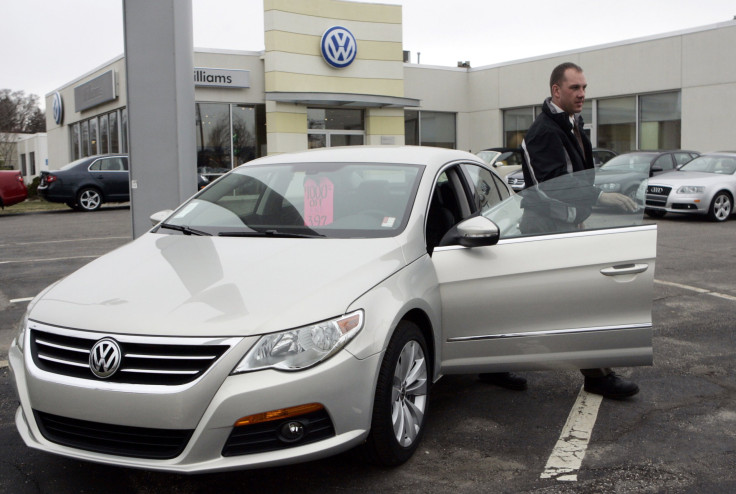Are Ford And Volkswagen Close To A Massive Tech-Sharing Deal?

Ford Motor Company's (NYSE:F) partnership with German auto giant Volkswagen AG (NASDAQOTH:VWAGY) might soon get a whole lot deeper: The Detroit News is reporting that the two automakers are close to a major alliance around electric vehicles and self-driving technology.
If it happens, this will be a big deal -- in more ways than one. Here's what we know.
A landmark collaboration on key technologies
Here are the key points of the deal, as reported by the Detroit News:
- Volkswagen will share its modular battery-electric vehicle (BEV) architecture, called MEB, with Ford. (The first VW-brand MEB-based vehicles are expected to launch later this year.)
- VW will invest in Argo AI, the Pittsburgh-based autonomous-vehicle start-up controlled by Ford. VW will take a minority stake in Argo AI and get a seat on its board. (Ford will retain its majority stake in the company, and its two board seats.)
The deal could be announced as soon as Friday, according to the report. But what does all of this mean? Let's dig a little deeper.
Electric vehicles
While Ford has a high-performance battery-electric crossover SUV under development for launch next year, and is known to be working on a battery-electric F-150 pickup, its mass-market electric-vehicle efforts have appeared to lag some rivals', notably those of VW and General Motors (NYSE:GM).
Given that Europe and China, two important markets, are moving to require electric vehicles as part of larger efforts to reduce emissions, Ford has faced a choice: ramp up its spending on BEV technology (and on creating a BEV supply chain) or partner with a rival that is further along.
VW, for its part, has been open about its intent to become a major producer of electric vehicles -- and open about its willingness to share its electric-vehicle platform. Like other VW "toolkit" vehicle architectures, MEB (the German abbreviation for "Modular Electric Drive Kit") is "modular," meaning that it can be used as the engineering basis of vehicles of many different shapes and sizes.
MEB's debut isn't far away: VW will begin production of its first MEB-based vehicle, the Volkswagen ID.3 hatchback, by the end of 2019. Several more MEB-based VWs will come to market over the next four years, including the well-received I.D. Buzz, a riff on the company's iconic 1960s Microbus.
The Detroit News reported that Ford plans to use MEB primarily in Europe, and primarily for electric versions of its big-selling Transit commercial vans. How quickly will Ford be able to develop and launch its own products using the MEB toolkit? That's one key question that I expect Ford to answer if and when the deal is officially announced.
Autonomous-driving technology
While VW has moved aggressively to stake out a leadership position in mass-market BEVs, it has appeared to lag some key rivals on the other potentially transformative (and hugely expensive) automotive technology, autonomy.
Meanwhile, Ford -- or more accurately, Argo AI -- has quietly moved to the forefront of self-driving technology over the last couple of years, at least in the estimation of many analysts.
Argo AI was founded in late 2016 by veterans of the autonomous-vehicle development efforts at Waymo and Uber Technologies (NYSE:UBER). So far, it has been funded mostly by Ford, which took a majority stake in early 2017 and transferred its self-driving software team to the new company.
According to the Detroit News report, VW's Munich-based self-driving team will join Argo AI if the deal happens. VW will get access not only to the latest version of Argo's software, but also to the data gathered and lessons learned by Argo and Ford to date.
The upshot: A potential win for all parties
Ford and VW have been in talks for months about the possibility of a "strategic alliance" covering a number of areas. Officially, the two companies have said very little about the discussions, but a VW executive confirmed in March that the two signed a deal to jointly develop a new pickup truck -- and hinted that that much-larger things were in the works.
As reported, this deal seems like a no-brainer, a win-win for all parties that doesn't compromise competitiveness for either Ford or VW. Will it happen? We may know very soon.
John Rosevear owns shares of Ford and General Motors. The Motley Fool recommends Uber Technologies. The Motley Fool has a disclosure policy.
This article originally appeared in The Motley Fool.




















